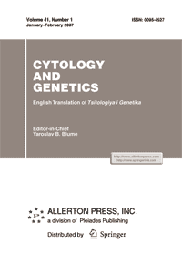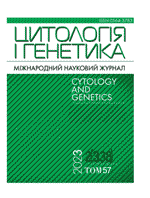Cancer of the uterine cervix is the third most common cancer in women worldwide and the most common cancer among Mexican and Latin American women. Risk factors that have been associated with the development of cervical intraepithelial neoplasia suggest that Human Papillomavirus (HPV) types 16, 18, 31, and 33 entail a high risk of developing a malignancy of this type. The accumulation of genetic alterations allows the growth of neoplastic cells; chromosomal instability is an event that occurs in the precancerous stages. The candidate cancer risk biomarkers include cytogenetic endpoints, such as chromosomal aberrations, sister chromatid exchange, micronuclei, and the outcomes of comet assay and DNA breakage detection-fluorescence in situ hybridization. The patterns identified in these cytogenetic studies indicate that chromosomal instability is a transient and chromosomally unstable intermediate in the development of cervical lesions. In this context, the mechanisms that may underlie the progressive increase in genetic instability in these patients seem to be related directly to HPV infection. The studies discussed in this paper show that chromosomal instability may serve as a biomarker by predicting the progression of cervical intraepithelial neoplasia. Nevertheless, these results should be validated in larger, prospective studies.
Keywords: chromosomal instability, cervical cancer, biomarker

